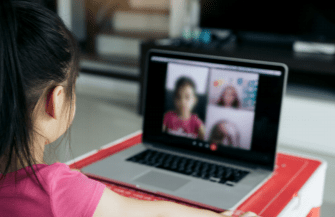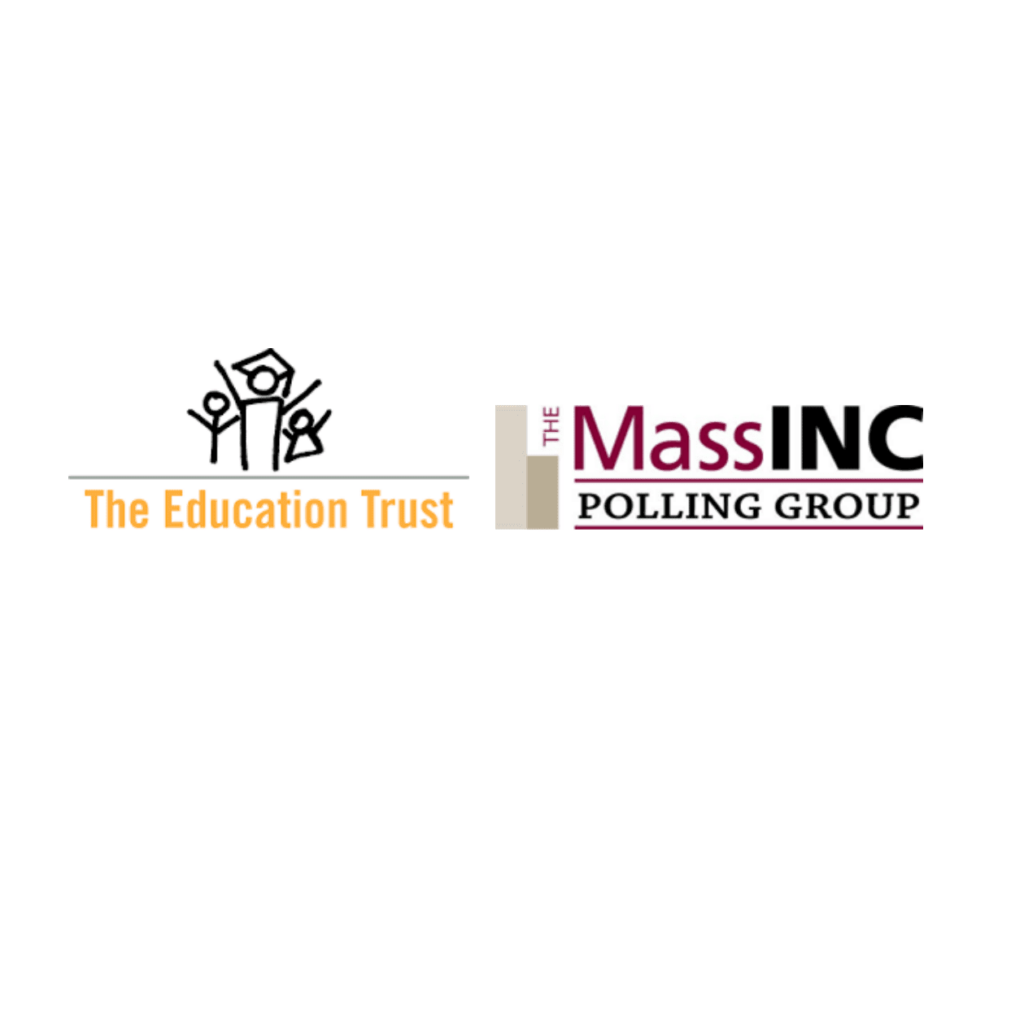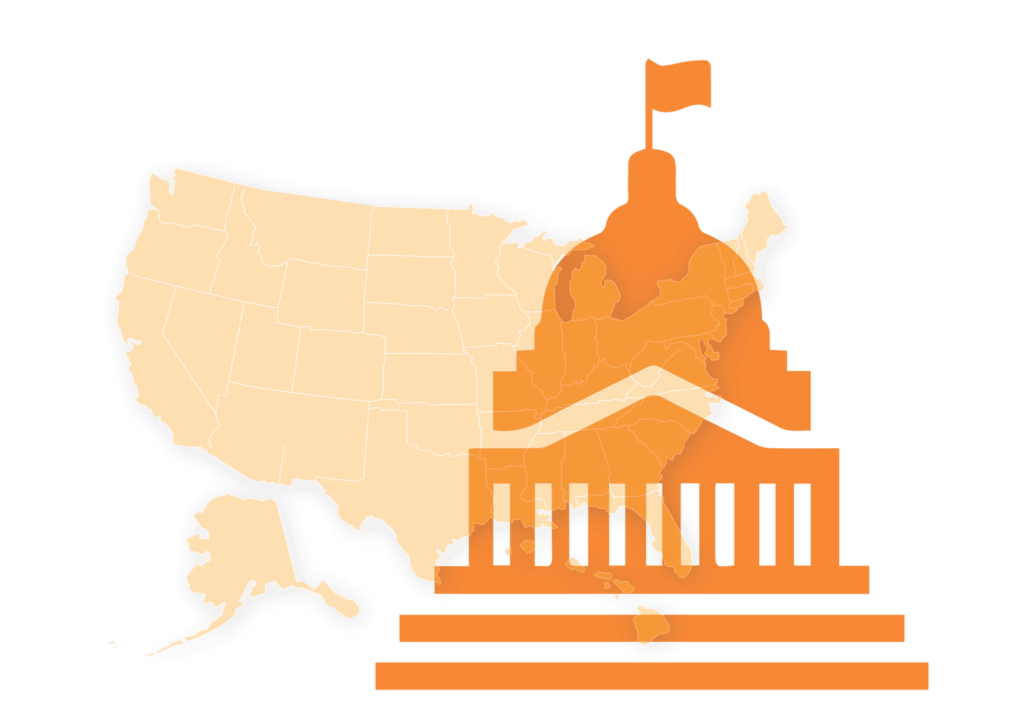Students report wide gaps between needs and available services, with nearly 1 in 3 skipping or reducing size of meals
The coronavirus crisis is taking a heavy toll academically, emotionally, and financially on higher education students according to a new poll released today by The Education Trust–New York and The Education Trust–West.
More than three-quarters (77%) of students say they are somewhat or very concerned about staying on track to graduate in the wake of the pandemic. The worry is heightened for Black (84%) and Latinx (81%) students. Majorities report that both their engagement in their coursework and the quality of their education has diminished since schools moved online. Contributing to students’ fears are wide gaps between the services they would find helpful and those that schools have provided. In particular, students indicated that better access to online resources and additional opportunities for interactions with faculty, counselors, and staff would be helpful.
Students are also struggling to afford tuition and meet basic needs. Nearly a third (31%) have skipped or reduced meals because they cannot afford or access food. Just 53% say they think they will be able to pay for basic needs like food, housing, and tuition if the current crisis isn’t resolved in the next two months.
The pandemic has also exacerbated pre-existing inequities for students of color, first generation college students, and students from lower-income families who already faced too many barriers to an affordable, high-quality college education.
- Students who live in lower-income households (<$50,000) expressed high levels of concern about additional issues, such as being able to support family financially while in school (66% compared to 40% of higher-income students) and needing to drop out to support themselves or their families financially (63% versus 45%).
- 86% of Black students are worried about not being able to afford tuition or other expenses compared to 64% of White students.
- 60% of Black students and 67% of Latinx students are worried about losing access to affordable, campus-based health services compared to 46% of White students.
- More than 40% of Latinx students in two-year programs say the crisis has made them less likely to transfer to a four-year school.
- 67% of Asian students are concerned about experiencing bigotry or hate due to prejudice associated with the coronavirus.
The poll demonstrates an urgent need for public leaders to step in before millions of current students drop out or suffer even more trying to continue their studies. To change this trajectory, states will need to protect higher education budgets, Congress will need to help fill gaps, and schools will need to prepare to meet students’ academic and non-academic needs as never before.
“More than four in five college students in New York are worried about staying on track to graduate, and the pandemic is making the existing inequities in our educational system even worse,” said Ian Rosenblum, executive director of The Education Trust–New York. “Students recognize the efforts their colleges and universities are making in these unprecedented circumstances, and at the same time students need greater support than ever before. It is more important than ever that colleges and universities be engines of social and economic mobility, which requires continued state action and greater federal investment in emergency relief for students, colleges and universities, and states.”
“If we’re not listening to students, our efforts will not successfully support them,” said Dr. Elisha Smith Arillaga, executive director of The Education Trust–West. “As we respond to this crisis, and when we eventually move forward, all of our actions should be guided by the real needs of the people closest to the challenge—the students themselves.”
The poll collected data on both supply and demand for services and resources, revealing a gap between what is needed and what is available. Although a majority (76%) of college/university students nationwide report that their school handled the coronavirus well, most reported that online textbooks, tutoring, virtual office hours, financial aid, mental health services, and internet access would be helpful while few reported them being available. Schools will need to be prepared to close these gaps when students return in the fall.
| Would be helpful |
School is doing this |
|
| 87% |
53% |
Virtual office hours or other ways to connect with faculty |
| 86% |
50% |
Virtual office hours or other ways to connect with academic or career advisors |
| 84% |
52% |
Tutoring, advising, or other academic support |
| 83% |
31% |
Career advising and job preparation |
| 82% |
37% |
Emergency financial aid or other financial support |
| 78% |
32% |
Mental health services, counseling, and emotional or psychological support |
| 67% |
23% |
Food support, like access to food pantries |
| 62% |
14% |
Alternative housing arrangements |
| 46% |
7% |
Alternative child care arrangements |
The pandemic threatens academic achievement at all stages, ranging from lower engagement and concerns about academic performance to doubts about whether graduation and subsequent career opportunities are even possible anymore.
- 18% of students are not confident they will even return to school in the fall.
- More than half (53%) of students say the quality of instruction they receive is getting worse due to colleges going virtual, and 57% say their interest and engagement in coursework is waning.
- 82% of students are worried that their grades will suffer, 77% are worried about staying on track to graduate, and 80% are worried they will not get the skills or work experience they need to get a job.
- 29% of two-year students—including 42% of Latinx students—say they are less likely to consider transferring to a four-year program than before the pandemic.
- Nearly one out of every ten students of color says they lack the internet-enabled devices to participate in online classes, and 15% of Latinx students cite lack of reliable internet as a challenge.
Students are struggling to meet their own basic needs, including food and housing, in addition to tuition.
- Nearly a third (31%) of college students—including 43% of students from lower income households and 39% of students of color—have skipped or reduced the size of their meals because they cannot afford or access food.
- Just 53% of all students and only 43% of students from lower income households say they think they will be able to pay for expenses like food, housing, and tuition if the current crisis isn’t resolved in the next two months.
- Most (62%) feel uneasy about their personal finances.
- 58% of Black students and 66% of Latinx students are worried about losing access to affordable, campus-based health services compared to 45% of White students.
The pandemic has also borne disturbing mental health trends that may continue into the fall.
- A shocking 36% of students are worried about developing substance abuse or addiction during this time.
- 71% say they are concerned about experiencing anxiety and depression when they return to school in the fall.
“These disparities existed among the Latinx community before COVID-19. The pandemic has only made them harder to ignore,” said Frankie Miranda, President of Hispanic Federation. “We need to focus on addressing the immediate needs of our students, so that their college progression does not halt. These poll results show significant long-term impacts affecting our already marginalized communities. We must seize this as an opportunity to take action.”
“The diverse students in our state are facing a confluence of tremendous challenges that threaten their ability to finish college, find work, support their families, and maintain their physical and mental health,” said Monica Lozano, President and CEO of College Futures Foundation. “As we respond, we must do so creatively and collectively, with an unwavering focus on equity and students who are the most vulnerable. If we do that, we help ensure that vital pathways to opportunity and the dream of an inclusive society survive the crisis of the current moment.”
“As a first-generation immigrant student, COVID-19 has exacerbated many of my fears when it comes to educational attainment,” said Darleny Suriel, policy assistant for #DegreesNYC and a Borough of Manhattan Community College student. “I fear that remote learning may affect my ability to graduate on-time next semester and my transfer process to a four-year college. I also fear for the long-term negative effects that remote learning will have on my autistic brother’s education and development due to the fact that I am the one home-schooling him even though I am not a trained special needs educator. All of these stressors have negatively impacted my mental health and my ability to be completely focused on my tasks for school and work.”
“The impact of COVID-19 varies for every student,” said Michael Wiafe, outgoing president of the Cal State Student Association. “I come from the California State University system, which serves the largest and most academically, ethnically, and regionally diverse four-year student body in the nation. This also means that while some students have a smooth transition to the changes brought by the pandemic, others have had to cope with the frustration and difficulty of what it now takes to pass class successfully. COVID-19 has exacerbated inequities across the nation, and this does not exclude higher education. Faculty, staff, administrators, elected officials, and all those who have an impact on the student experience must come together in support of students as we navigate the effects of the pandemic.”
More detailed polling memos are available with a focus on California and New York.
###






 January 11, 2023 by
January 11, 2023 by 
